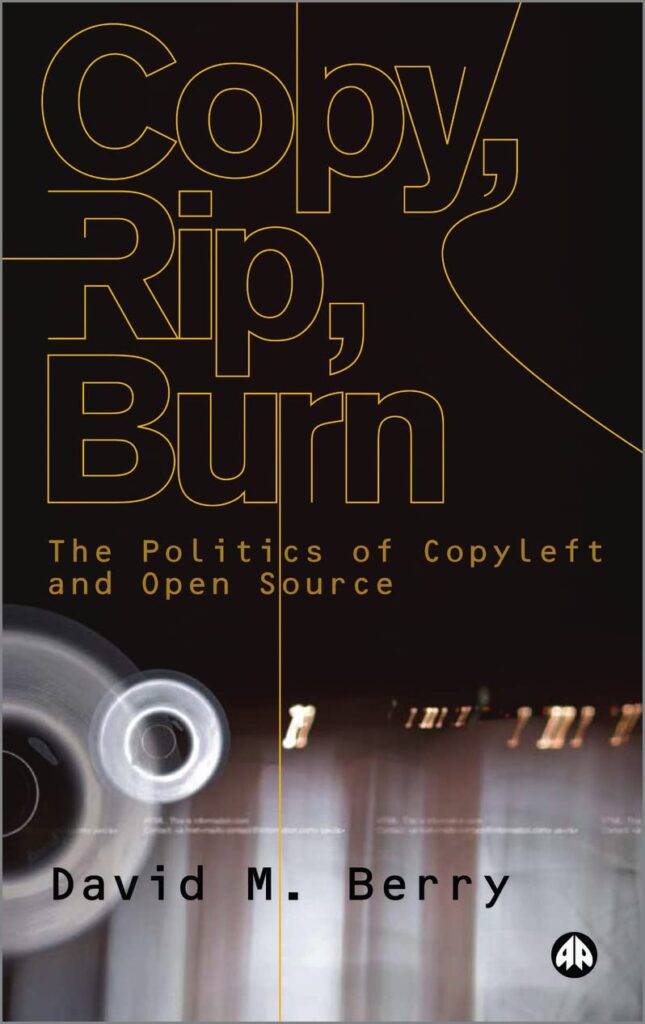
Copy, Rip, Burn: The Politics of Copyleft and Open Source
by David M. Berry
Not a typical text for me, I was interested in intellectual property (IP) rights and how the digital age plays a role in their changing nature. To my delight, I found a deeper exploration of the subject covering a greater range of the landscape of IP rights.
Copy, Rip, Burn: The Politics of Copyleft and Open Source by David M. Berry discusses how the changing of IP rights is focused on power and profit which in turn alters life beyond the arena of who owns what. Like a rippling a pond, Berry writes, the ramifications of IP rights expands outward effecting a multitude of aspects our lives “transforming our ability to interact, contest meaning and to take part in culture and creativity.”
While reviewing the varying effects, including legal, of these changes, he continues to return to the touchstone of production of meaning. Crucial to human process, the ability to reevaluate meaning is a praxis that can be smothered or restricted as can the power to decide who can make use of a particular intellectual property. In a culture focused on merchandising more and more aspects of life, it is of no surprise that ideas would in turn be commodified.
A response to the growing, more restrictive, and longer time span of control is open source licensing. Copyleft is a response to copyright as well an interest in expanding discourse between created works. The need for this ability was important enough for the writers of the U.S. Constitution to include it in its first Article. The necessity to promote the Progress of Science and useful Arts which meant limited control.
Rather than pointing towards an anti-capitalist economy or an alternative conception of technology, the copyleft movement share a broadly pro-technology linear model of the development of human knowledge. Although the question of control is highlighted, particularly in the discourses of the Free Software Foundation, both articles tend to view the workings of technology as unproblematic and further technical development as a human good.
These discourses have helped to alert the public and politicians to the dangers posed to liberal democratic society if warnings about knowledge privatization are not heeded. Towards protecting IP and cultivating a technology commons (a place where people may share in the abundance equally, Berry argues for grassroots response and not a reliance on corporate or state institutions to protect and encourage the sharing of information.
Written by a dedicated scholar, Copy Rip Burn is a strong resource for looking at the story of intellectual property and how it affects the larger world.